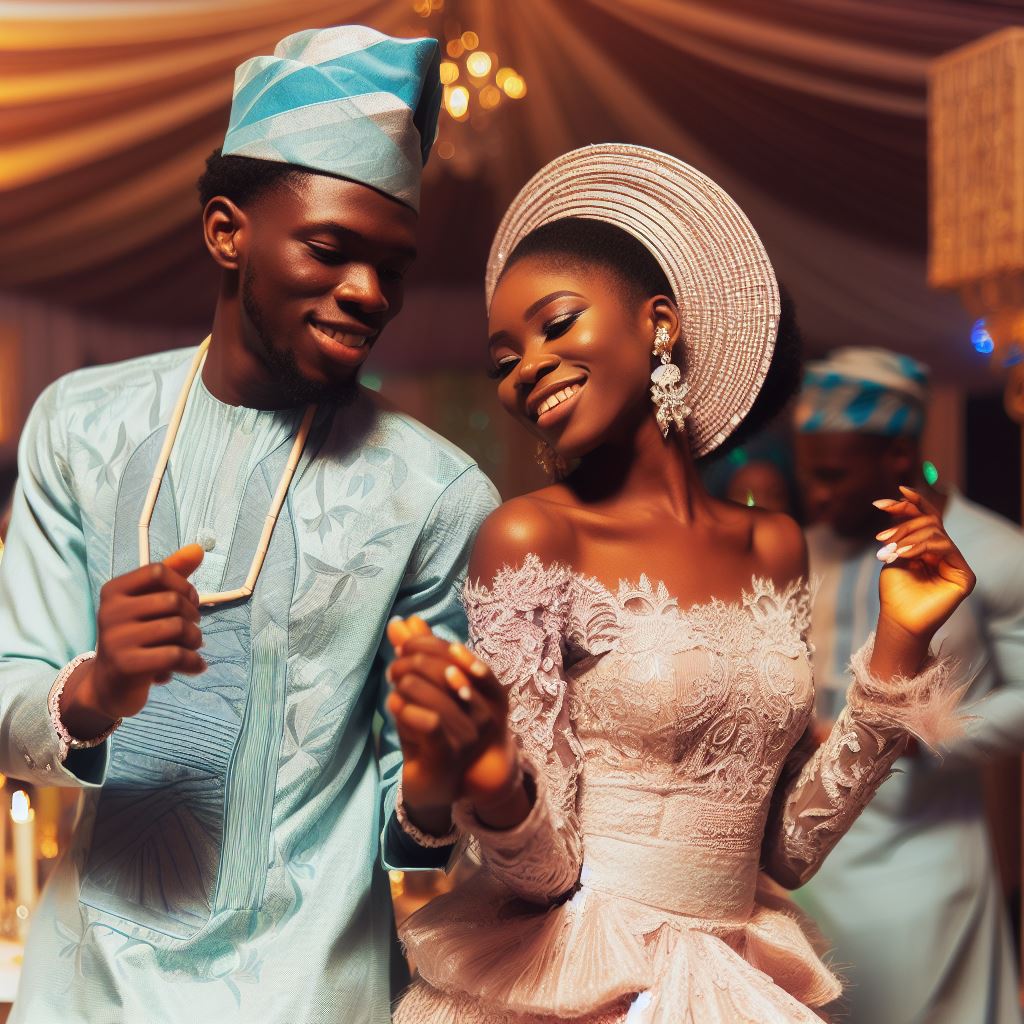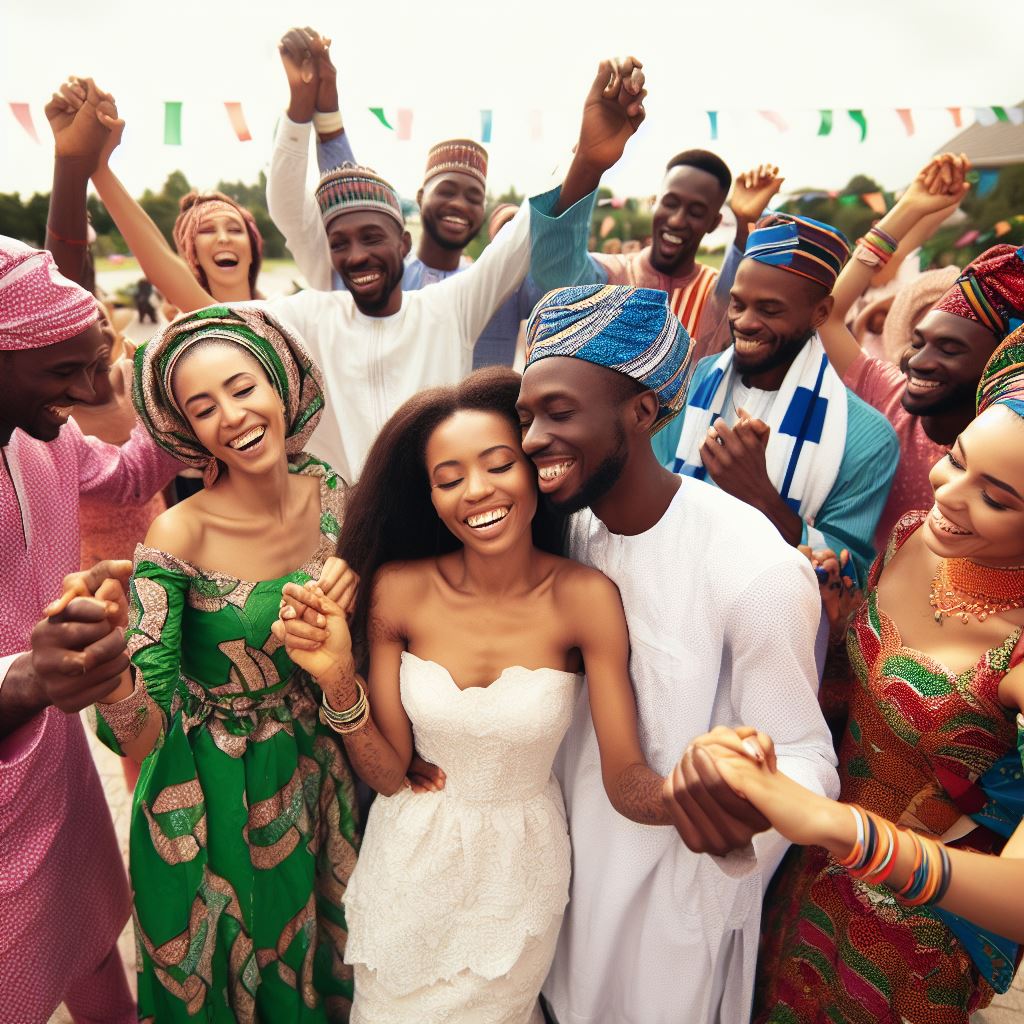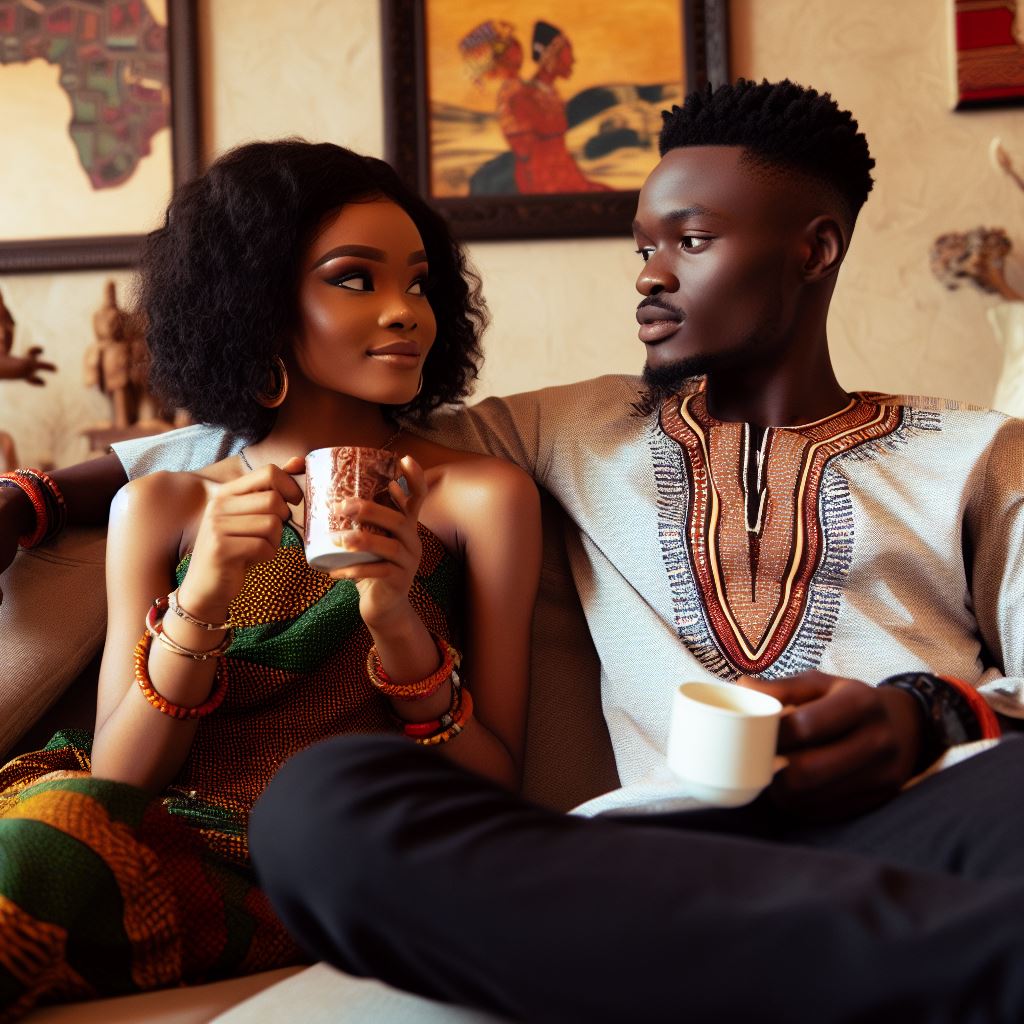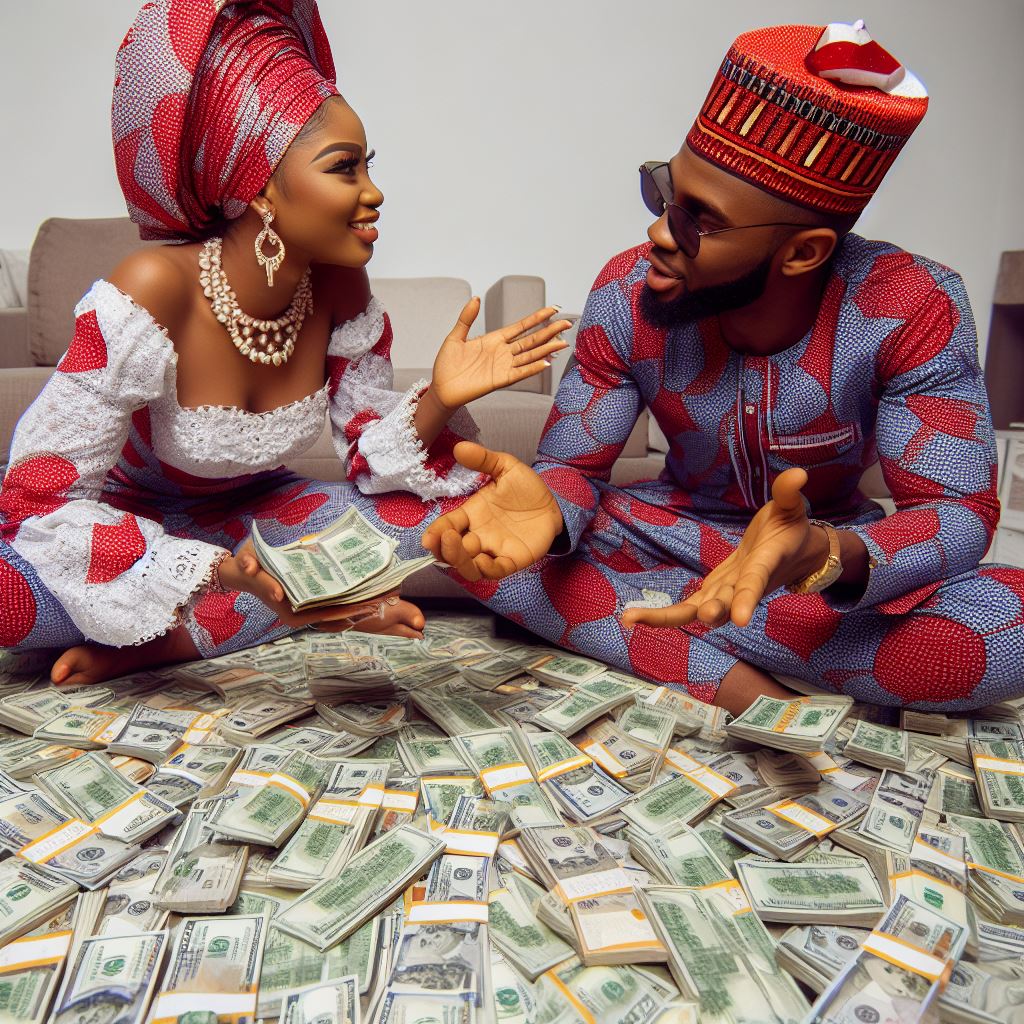Introduction
Marriage holds immense significance in Nigerian culture, serving as a pillar of societal structure.
It represents the union of two individuals, acknowledging their commitment to building a family and community.
The purpose of this blog post is to delve into the intricate dynamics of marriage life in Nigeria, shedding light on its multi-faceted elements.
By comprehending these dynamics, we hope to foster a deeper understanding and promote dialogue on this vital aspect of Nigerian society.
For centuries, marriage has been more than just a personal choice in Nigeria. It is a communal affair, involving families, extended relatives, and even the larger community.
Traditional customs and cultural practices play a significant role in shaping the marital experiences of individuals.
The blog post will explore various aspects, such as the negotiation of bride price, dowry, and importance of cultural compatibility.
We will also discuss the dynamics of gender roles within marriage, exploring how they have evolved over time.
Additionally, the influence of religion on marriage practices will be examined, as Nigeria is home to diverse religious beliefs that impact marital unions.
This section aims to provide readers with a comprehensive understanding of the cultural, social, and religious factors that shape the dynamics of marriage in Nigeria.
By gaining insight into these dynamics, we can better appreciate the complexity and beauty of marriage life in Nigeria, deepening our understanding of this essential institution for the Nigerian society.
Traditional Nigerian Wedding Customs
A. Traditional marriage ceremonies
In Nigeria, traditional marriage ceremonies are elaborate and vibrant celebrations that involve multiple rituals and customs.
These ceremonies serve as a testament to the rich cultural heritage and traditions of the Nigerian people.
Traditional Nigerian weddings usually last for several days and are filled with music, dancing, and feasting.
The ceremonies vary across different ethnic groups, but they all share certain common elements.
One of the essential aspects of a traditional Nigerian wedding is the “Introduction Ceremony.”
This event serves as an official introduction between the families of the bride and groom.
It is an opportunity for both families to get to know each other and establish a connection.
Another integral part of the wedding is the “Engagement Ceremony” or “Knocking on the Door.”
This ceremony involves the groom’s family formally asking for the hand of the bride in marriage.
It is a symbol of respect and demonstrates the seriousness of the groom’s intentions.
The highlight of the traditional marriage ceremonies is the “Marriage Ceremony” itself.
This is where the couple exchanges their vows and is officially recognized as husband and wife.
The ceremony usually takes place in the presence of family members, friends, and community members.
B. Dowry and its role in Nigerian weddings
In Nigerian weddings, the concept of dowry plays a significant role.
Dowry, also known as “bride price” or “lobola,” is a payment made by the groom or his family to the bride’s family as a gesture of goodwill and appreciation.
The dowry is usually given in the form of cash, gifts, or livestock. It represents a symbolic transfer of responsibility from the bride’s family to the groom’s family.
It is not seen as a purchase of the bride but rather as a token of appreciation for the bride’s upbringing and her family’s support.
The payment of dowry is considered a sacred obligation and a way to honor the bride’s family.
It signifies the groom’s commitment to taking care of the bride and her well-being.
The amount of dowry can vary depending on factors such as the bride’s family’s social status and the groom’s financial capabilities.
C. The importance of family involvement in the wedding process
In Nigerian culture, family plays a vital role in the entire wedding process.
The involvement of family members ensures the preservation of cultural traditions and fosters a sense of unity and togetherness.
Family members actively participate in organizing and planning the wedding ceremonies.
They contribute their time, effort, and financial resources to make the occasion memorable and successful.
Family involvement extends beyond mere logistics.
Elders and other relatives provide guidance and wisdom to the couple, emphasizing the importance of a successful and enduring marriage.
They offer blessings and prayers for the couple’s happiness and prosperity.
The inclusion of family members in the wedding process strengthens the bond between families and creates a support system for the newly married couple.
It also reinforces the idea that marriage is not just a union between two individuals but between two families.
Furthermore, family involvement fosters a sense of accountability and responsibility.
It reminds the couple of their duty to honor and respect their families’ values and traditions.
In fact, understanding the dynamics of marriage life in Nigeria requires a close examination of the traditional Nigerian wedding customs.
These customs, such as the elaborate ceremonies, dowry, and family involvement, contribute to the rich tapestry of Nigerian culture and reinforce the significance of marriage in Nigerian society.
The Role of Religion in Nigerian Marriages
A. Overview of the religious diversity in Nigeria
- Nigeria is a country known for its diverse religious beliefs and practices.
- The major religions in Nigeria include Christianity, Islam, and traditional indigenous religions.
- Christianity is practiced by a significant portion of the population, with various denominations present.
- Islam also has a large following in Nigeria, particularly in the northern region.
- Traditional indigenous religions are still practiced by a minority, predominantly in rural areas.
B. How religious beliefs and practices influence marital dynamics
- Religious beliefs play a fundamental role in shaping the values, morals, and expectations within Nigerian marriages.
- Christianity emphasizes the importance of fidelity, love, and commitment in marriage.
- Islamic teachings promote mutual respect, submission, and the importance of family unity.
- Traditional indigenous religions often place emphasis on ancestral worship, community values, and respect for traditional customs.
- These religious beliefs and practices influence marriage dynamics, including family decision-making, gender roles, and conflict resolution.
C. The role of religious leaders in marriage counseling and guidance
- Religious leaders, such as priests, pastors, imams, and traditional spiritual leaders, have a significant influence in Nigerian marriages.
- They provide counseling and guidance to couples, emphasizing the importance of religious values in marital life.
- Religious leaders play a role in ensuring that couples adhere to religious teachings and resolve marital conflicts within the context of their faith.
- They also have the authority to officiate weddings, bless unions, and provide spiritual support to couples throughout their marriages.
- The involvement of religious leaders helps reinforce the importance of religious beliefs and practices in Nigerian marital life.
In general, religion plays a crucial role in Nigerian marriages.
The religious diversity in the country contributes to the unique dynamics and practices within marital relationships.
Religious beliefs shape values, expectations, and behaviors, influencing various aspects of marriage such as decision-making, gender roles, and conflict resolution.
Additionally, religious leaders play a vital role in providing counseling, guidance, and support to couples, ensuring they adhere to religious teachings and navigate their marriages based on their faith.
The role of religion in Nigerian marriages is instrumental in maintaining cultural traditions, strengthening family units, and fostering spiritual growth within marital relationships.
Gender Roles and Expectations in Nigerian Marriages
A. Traditional gender roles within Nigerian marriages
- Men are expected to be the breadwinners and providers for the family.
- Women are usually tasked with domestic duties, including child-rearing, cooking, and housekeeping.
- Husbands are considered the head of the household and make major decisions.
- Wives are expected to be submissive and obedient to their husbands.
- Traditional gender roles are deeply ingrained in Nigerian culture and often define marital dynamics.
B. Examination of changing gender dynamics in modern marriages
- Modern Nigerian marriages are witnessing a significant shift in gender roles.
- Many women are now pursuing education and careers, becoming financially independent.
- Men are gradually embracing household chores and sharing child-rearing responsibilities.
- Couples are increasingly making joint decisions, promoting equality and partnership.
- Changing gender dynamics are challenging traditional norms, leading to more balanced marriages.
C. The impact of gender roles on marital happiness and stability
- Traditional gender roles can create imbalance and dissatisfaction within marriages.
- Women may feel frustrated and unfulfilled if their aspirations and contributions are ignored.
- Men who adhere strictly to traditional roles may struggle with the expectations placed on them.
- Inequality and power imbalances can lead to conflicts and strained relationships.
- Marital happiness and stability are often enhanced in marriages with more equitable gender roles.
In essence, gender roles and expectations have a significant influence on Nigerian marriages.
While traditional gender roles still play a role, changing dynamics are reshaping marital relationships.
Embracing equality, shared responsibilities, and mutual respect can promote happiness and stability in modern Nigerian marriages.
Read: A Closer Look at Biblical Couples: Lessons for Today

Cultural Factors Affecting Nigerian Marriages
A. Overview of Tribal Differences and Their Influence on Marriage Dynamics
Nigeria, a diverse nation with over 250 ethnic groups, experiences varying marriage dynamics shaped by tribal distinctions.
Tribal diversity often impacts marriage in terms of traditions, expectations, and even the choice of a spouse.
In the North, Hausa and Fulani cultures emphasize arranged marriages, while the South leans towards love marriages.
Understanding these differences helps couples navigate the challenges of merging distinct cultural backgrounds in their unions.
B. The Impact of Cultural Practices and Norms on Marital Relationships
Nigeria’s rich cultural practices significantly affect marital relationships, dictating ceremonies, rituals, and everyday conduct.
In Yoruba culture, for instance, the ‘Engagement Ceremony’ is a critical event that symbolizes commitment and family approval.
In Igbo culture, the ‘Iku aka’ rite solidifies the bond between families, and breaking it is a grave breach of tradition.
Knowing and respecting these practices is vital to maintaining a harmonious marriage.
C. The Importance of Cultural Compatibility in Nigerian Marriages
Cultural compatibility is a cornerstone of Nigerian marriages, fostering understanding and a sense of belonging.
Sharing cultural values and traditions creates a stronger bond between spouses and their families.
It helps couples communicate more effectively and navigate the intricacies of Nigerian society.
Cultural compatibility doesn’t imply homogeneity but rather respect and openness towards each other’s backgrounds.
In review, understanding the intricate web of cultural factors that influence Nigerian marriages is essential.
Embracing diversity, respecting traditions, and fostering cultural compatibility are pivotal to a successful and enduring union in this vibrant and multifaceted nation.
Read: Fortifying Love: Muslim Duas for Marriage Anniversaries in Nigeria
Challenges Faced in Nigerian Marriages
A. Challenges faced by married couples in Nigeria
- Infidelity: Trust issues arise when one or both partners engage in extra-marital affairs.
- Communication breakdown: Ineffective communication leads to misunderstandings and unresolved conflicts.
- Cultural differences: Clashes may occur due to varying customs and traditions within Nigeria.
- Gender roles: Traditional expectations of gender roles can cause tension and dissatisfaction.
- Family interference: Extended family members’ interference can strain the marital relationship.
B. The impact of economic factors on marriages
- Financial stress: Lack of financial stability can lead to arguments and tension between partners.
- Unequal financial contributions: Discrepancy in income can lead to power imbalances and resentment.
- Inflation and high cost of living: Economic challenges increase the pressure on marriages to sustain a decent lifestyle.
- Unemployment: Job loss can impact self-esteem and strain the marital relationship.
- Materialism: Unrealistic expectations and materialistic desires can strain marriages.
C. The importance of communication and conflict resolution skills
- Effective communication builds trust, enhances empathy, and fosters understanding between spouses.
- Active listening promotes open dialogue and reduces misunderstandings and misinterpretations.
- Conflict resolution skills help couples address disagreements in a healthy and constructive manner.
- Respecting each other’s opinions and emotions creates a safe space for open communication.
- Negotiating compromises allows couples to find solutions that benefit both parties.
Despite the challenges faced in Nigerian marriages, developing strong communication and conflict resolution skills can help couples navigate difficult times and foster a fulfilling and long-lasting relationship.
Read: Blessings & Gratitude: Christian Anniversary Prayers for Nigerian Couples
Strategies for a Successful Nigerian Marriage
This blog section focuses on strategies for a successful Nigerian marriage, including tips for building a strong foundation of trust and understanding, the importance of mutual respect and support, and the benefits of premarital counseling and education.
A. Tips for Building a Strong Foundation of Trust and Understanding
- Communicate openly and honestly with your partner to foster trust and avoid misunderstandings.
- Be transparent about your feelings, needs, and expectations to avoid hidden conflicts.
- Listen actively to your partner and try to understand their perspective without judgment.
- Practice empathy and validate your partner’s emotions to build a strong emotional bond.
- Establish shared values and goals, aligning your visions for the future.
- Address conflicts promptly and resolve them through open dialogue and compromise.
- Make time for each other and prioritize your relationship to nurture emotional intimacy.
- Express gratitude and appreciation, acknowledging the efforts and contributions of your partner.
- Collaborate on decision-making and problem-solving, fostering a sense of teamwork.
- Forgive and let go of past mistakes, focusing on growth and improvement as a couple.
B. The Importance of Mutual Respect and Support in Marriages
- Show respect and appreciation for your partner’s individuality, opinions, and beliefs.
- Avoid belittling or insulting your partner, and instead, choose kindness and empathy.
- Support each other’s personal and professional development, celebrating achievements together.
- Be a source of comfort and refuge, providing emotional support during difficult times.
- Validate each other’s accomplishments and encourage each other’s dreams and aspirations.
- Create a safe and non-judgmental space for open communication and vulnerability.
- Share responsibilities and workload, ensuring an equal partnership in the marriage.
- Respect boundaries and personal space, allowing each other to maintain individual identity.
- Do not engage in disrespectful or harmful behaviors, such as physical or verbal abuse.
- Practice forgiveness and work towards resolving conflicts in a peaceful and respectful manner.
C. The Benefits of Premarital Counseling and Education
- Attend premarital counseling sessions to enhance communication skills and conflict resolution abilities.
- Learn about each other’s expectations, values, and beliefs, promoting understanding and alignment.
- Explore potential areas of conflict, such as finances, family dynamics, and future plans.
- Develop effective problem-solving strategies and establish ground rules for healthy communication.
- Gain insights from experienced professionals who can guide you through marital challenges.
- Discuss and plan for important topics, such as parenting styles, career goals, and household responsibilities.
- Learn techniques to manage stress, balance work and personal life, and prioritize self-care.
- Build a strong foundation for your marriage by proactively addressing potential issues.
- Establish shared expectations for marriage roles, responsibilities, and decision-making processes.
- Acquire tools and resources that can help navigate the different stages of married life.
By implementing these strategies, couples can lay a strong foundation for a successful Nigerian marriage, characterized by trust, respect, understanding, and ongoing personal growth.
Read: The Power of Prayer in Marriage: Key Bible Verses
Uncover the Details: Incorporating Nigerian Culture into Your Marriage Proposal
Conclusion
A. Recap of the main points discussed in the blog post
In this blog post, we explored the dynamics of marriage life in Nigeria, shedding light on various aspects of this institution.
We discussed the importance of family and community involvement, the impact of religion and culture, and the role of gender dynamics.
Through this exploration, we gained insight into the complexities and challenges faced by married individuals in Nigeria.
B. Final thoughts on the dynamics of marriage life in Nigeria
Marriage life in Nigeria is multifaceted, with its own unique set of joys and difficulties.
It is essential to understand and appreciate the distinct dynamics that shape Nigerian marriages.
By recognizing the importance of factors such as family, culture, and religion, we can gain a deeper understanding of this institution and work towards building stronger and healthier marital relationships.
C. Encouraging readers to embrace the diversity and richness of Nigerian marriages
As readers, let us celebrate the diversity and richness of Nigerian marriages. Each marriage is a unique blend of traditions, beliefs, and experiences.
By embracing this diversity, we can learn from one another and foster greater acceptance and understanding.
Let us strive towards supporting and empowering married individuals in Nigeria, creating a society where all marriages thrive and flourish.




